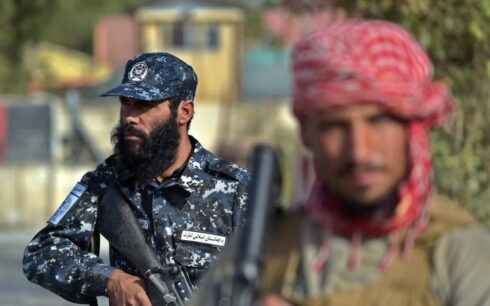Today, August 15, marks the third anniversary of the collapse of Afghanistan’s republic government. On this day in 2021, as international forces were already withdrawing, ex-President Ashraf Ghani fled the country, leading to the disintegration of the republic.
The Taliban refers to the fall of the republic as a “day of victory” and commemorated it Wednesday, August 14. However, many citizens described the day as the beginning of “profound suffering and despair”, particularly for women who have been systematically excluded from public and political life.
“August 15 is a dark day for the women and girls of Afghanistan. On this day, we lost all the values that mattered in our lives,” said one Kabul resident, speaking on condition of anonymity. Another resident expressed despair over the loss of dreams and aspirations since the Taliban’s return to power. “Since the Taliban took control, I’ve lost all my educational and life ambitions. I’m hopeless about my future now,” she said.
Reports from various provinces, including Panjshir, Takhar, Laghman, Ghazni, and Kabul, indicate that the Taliban pressured shopkeepers to display their flag, threatening serious consequences for non-compliance, according to sources who spoke to Amu.
In addition, credible sources informed Amu that the Taliban’s Ministry of Education compelled teachers to participate in the August 15 ceremonies.
Political analyst Wais Nasiri described the Taliban as a “tyrannical group” that seeks to impose its beliefs and flag on the Afghan people by force. “The Taliban is a despotic group that wants to impose its ideology and flag on the people of Afghanistan through the barrel of a gun,” Nasiri said.
In a statement, the Taliban urged Afghans to be grateful for the “Islamic system” now governing the country, calling it a blessing. “The people should be thankful for this great blessing, consider it a privilege, and always be ready to protect and support it,” the statement from the Taliban-controlled presidential palace read.
Meanwhile, former government officials and members of the Afghan Freedom Front denounced August 15 as a day of horror, calling for a united front against the Taliban. They argue that Afghanistan was handed over to the Taliban through a “political deal.”
Mohammad Mohaqiq, leader of the People’s Islamic Unity Party of Afghanistan, criticized the current situation, warning that renewed conflict will be inevitable if the Taliban do not heed the people’s demands. “The Taliban have shown no respect for the people’s demands. If they continue to ignore the wishes of Afghans and the international community, a return to armed resistance will be unavoidable. Cooperation among political parties and global actors is essential for the security of Afghanistan, the region, and the world,” Mohaqiq said.
Rahmatullah Nabil, former head of Afghanistan’s National Directorate of Security, echoed this sentiment, describing August 15 as the result of a “disgraceful political deal” that handed the country over to the Taliban. “Three years ago, Afghanistan was surrendered to the Taliban through a shameful deal. In the past three years, the Taliban have inflicted countless crimes and atrocities on the people of Afghanistan,” Nabil said.
Kareem Khalili, another prominent political leader, also condemned the current situation in Taliban-controlled Afghanistan as unbearable. The Afghan Freedom Front, in a separate statement, described the situation in Afghanistan as dire and called for the unification of forces opposed to the Taliban. “Abandoning the human duty to resist the Taliban in hopes of finding a political solution or any other excuse is no longer justified. The unification of anti-Taliban forces is the only way to dismantle the Taliban’s regime of oppression,” the statement read.
Three years into Taliban rule, the regime remains unrecognized by any country. Reports from the United Nations and global peace organizations indicate that Afghanistan has also become a safe haven for terrorist groups under Taliban control, further exacerbating the challenges facing the nation.
With the fall of the republic, all governmental structures and human rights organizations, which were the defenders of citizens’ basic rights and freedoms, also disintegrated. Upon their return to power, the Taliban annulled the constitution and numerous other laws, replacing them with the oral and written decrees of their leader as the basis for all governance.
Since their return, the Taliban have also banned girls and women from attending school beyond the sixth grade and from universities, and have severely restricted their right to work and travel. According to a recent report by UN Women, the Taliban have issued approximately 70 decrees over the past three years that limit women’s rights and freedoms, with some even imposing outright bans.





